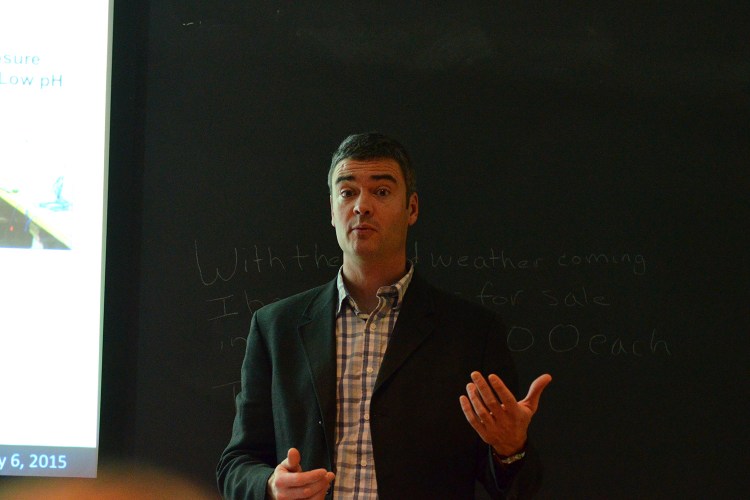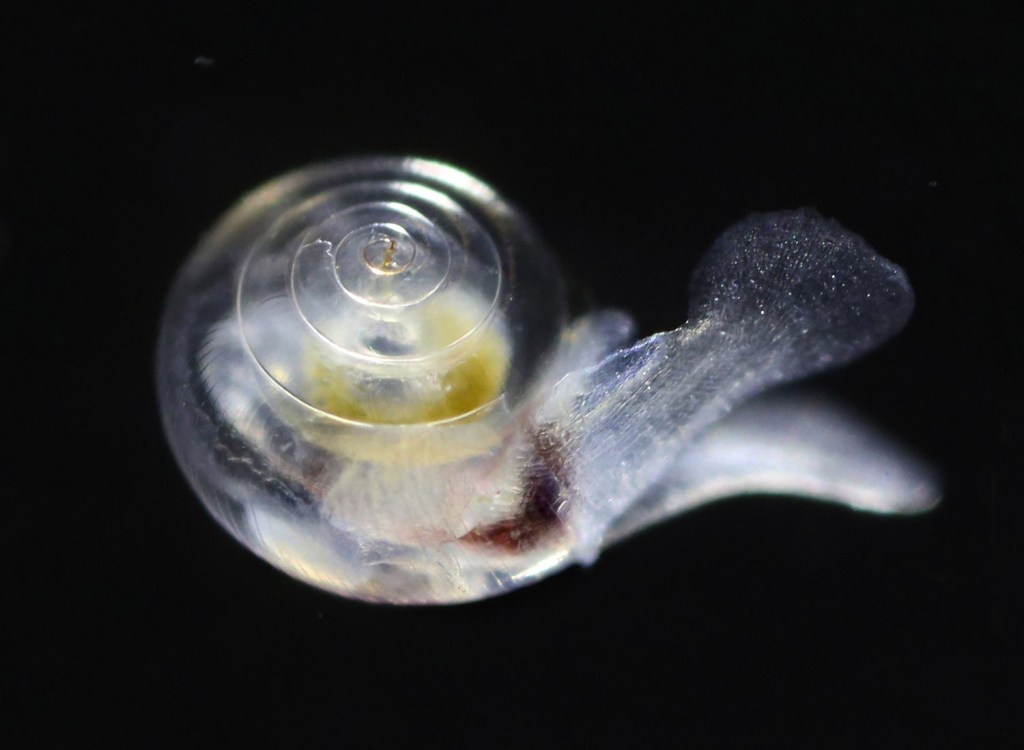WOODS HOLE, Mass. — For Gareth Lawson, the tiny water creatures known as “sea butterflies” might offer insight into one of the biggest problems to confront the world’s oceans.
Lawson is a biologist at the Woods Hole Oceanographic Institution, a private nonprofit across the water from Martha’s Vineyard. Sea butterflies – formally known as pteropods – are tiny marine snails.
“No more than a few centimeters – many of them the size of a grain of sand,” said Lawson.
They’re vital to understanding the world’s changing oceans because they come equipped with thin, sometimes transparent shells that are susceptible to changing ocean chemistry. As waters become more acidic, the sea butterflies’ shells dissolve.
While the long-term impact on sea butterflies and the marine environment around them is uncertain, what Lawson does know is that these lowly, delicate creatures play a big part in the food chain.
Pink salmon off the coast of Alaska, for example, get half their diet some years from sea butterflies.
“If they all dissolve away, what happens to the pink salmon?” he said. “That’s not clear.”
Lawson’s work is part of an ongoing effort by the National Science Foundation, a federal agency that sought five years ago to better understand ocean acidification.
David Garrison, a program director in the foundation’s Division of Ocean Sciences, said changing acid levels might affect organisms in the ocean “in ways we can’t appreciate.” The foundation had a five-year program, starting in 2010, that awarded about $12 million a year for research into ocean acidification. Lawson’s work at Woods Hole was among the projects.
Among 22 grants announced last year:
• Florida Atlantic University will study marine macroalgae and how their responses to changing ocean chemistry could affect coral reefs.
• University of California, San Diego, will explore the links among offshore biogeochemistry, coral reef metabolism and acidification.
• Pennsylvania State University will explore the response of tiny shelled organisms to ocean acidification during a warming period 56 million years ago.
• Duke University and Georgia Institute of Technology researchers will explore how microbes in coastal ecosystems fare differently from those in the open ocean.
• North Carolina State University researchers will study ocean acidification and coral reefs.
Of the projects announced in 2014, nine are by California researchers; two by North Carolina, Georgia, Pennsylvania and Florida; and one each by Hawaii, Oregon, Massachusetts, New Jersey and Bermuda.
Send questions/comments to the editors.




Comments are no longer available on this story